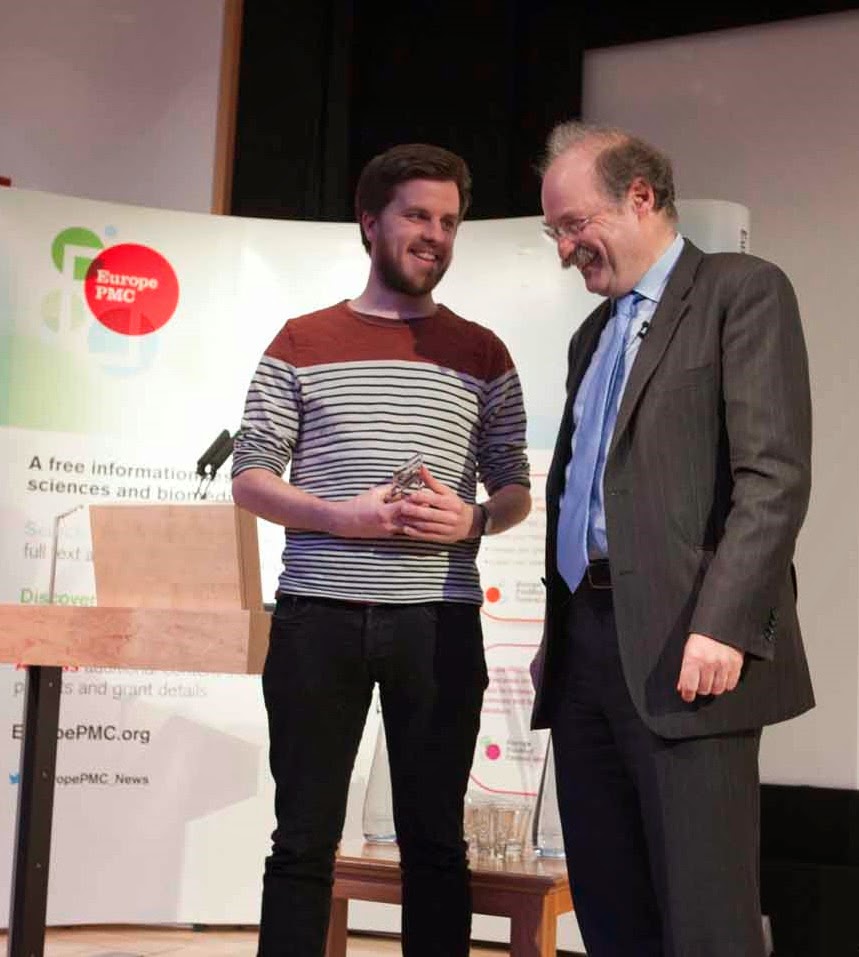By Aidan Maartens, Post-doc student at the Gurdon Institute
Note: Aidan was awarded third place in this year's Access to Understanding competition. Check back tomorrow to read his winning entry! Congratulations Aidan!
It ended in a pub with a group of us - some entrants, some science-communications people, and one of the judges of the competition - struggling to hear each other over the pub quiz in the background. It had started a couple of hours beforehand, in a reception hall slowly filling up with guests and a rising swell of echoing conversations. We were ushered in to the lecture hall, and a few talks later the awards were announced, photos taken, hands shaken, and conversations had with a bunch of nice people who were in some way linked to the competition. Someone jokingly described it as the science writing Oscars; the pub trip was, then, the glamorous after-party.
My motivations to enter Access to Understanding are probably common to most of the applicants: we get some sort of pleasure from writing, and like the chance to get out of the bubble of day to day research while still doing something connected to science. The articles on offer were in a way typical scientific papers, not the blockbuster, creating-synthetic-life or finding-the-Higgs-boson type papers. This is not to denigrate them at all, rather to say that they were more representative of the incremental nature of much scientific progress. The upshot was that writing a summary was a little more challenging, as the message and impact of the work was a bit more nuanced.
I would recommend this sort of competition to other scientists for a number of reasons. Even if you don’t particularly like writing, it’s a good skill to practice. You might even get to learn something new - for me, how next generation sequencing was revolutionizing the way scientists understand drug resistance in malaria. Finally, it lets you, for a few hours at least, get away from your own project and use another part of your brain. Perhaps you’ll get a new perspective on your project when you get back to it.
I would recommend this sort of competition to other scientists for a number of reasons. Even if you don’t particularly like writing, it’s a good skill to practice. You might even get to learn something new - for me, how next generation sequencing was revolutionizing the way scientists understand drug resistance in malaria. Finally, it lets you, for a few hours at least, get away from your own project and use another part of your brain. Perhaps you’ll get a new perspective on your project when you get back to it.
